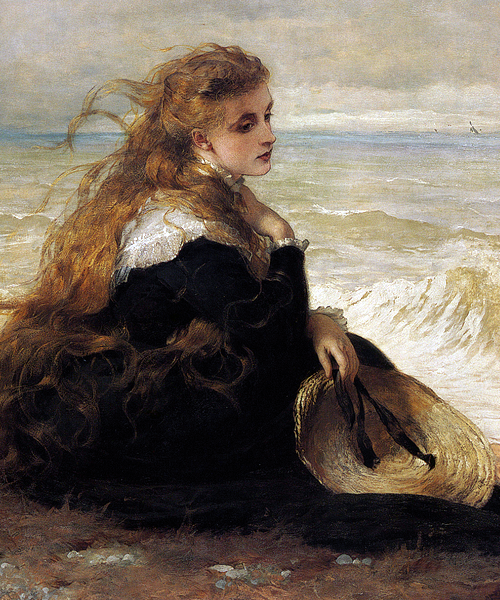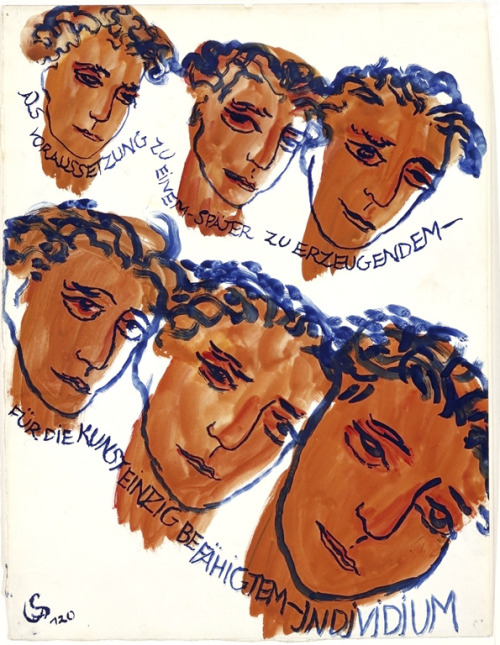Jewish Children Say Goodbye To Their Parents Through A Fence After Being Separated For Deportation In

Jewish children say goodbye to their parents through a fence after being separated for deportation in Lodz, Poland .
via reddit
More Posts from Farkash-gallery-blog and Others

What a Fox. | http://cur.im/1iBu1UU
Fine Art Prints from $25, by Jay Fleck (USA)

Marc Chagall, The Fiddler, 1913

חג סוכות שמח לכולם! 🌿🍋 I hope everyone is having a great Sukkot, and getting time to relax in their Sukkah (the struggles of living in an apartment are real during this holiday 😭😭). But I’m excited to go visit other people and their sukkahs they built, it’ll be fun! I hope everyone has had a meaningful Jewish holiday season (the holidays never seem to end, neither does the food). And I hope everyone gets a nice start to the cool October weather! I know I’ve missed it. 🍁🍂🌝🎃☕ #sukkot #chagsameach #happyholidays #sukkah #סוכות #חגשמח #חגים #יהודים #סתיו #שמח #jewish #judaism #october #happyoctober #fall #autumn #pumpkins #imissedthecoolweather
![A Decorative Synagogue Plaque Indicating The Times Of Prayer, [detail], By Abraham Pavian, Hermannstadt](https://64.media.tumblr.com/3c09b59d318e9841be60cf7bc8bb7fe7/tumblr_n555s5wYhu1rfe7gjo1_r1_500.jpg)
A Decorative Synagogue Plaque Indicating the Times of Prayer, [detail], by Abraham Pavian, Hermannstadt (Sibiu), Romania, (1878), multi-coloured paint on paper with metal dials set in a wood and glass frame, 40.6 x 55.9 cm, private collection. The five manual clocks designate the times of the daily morning and afternoon prayer service as well as the times of the services for the Sabbath prayers. The Hebrew inscription around the border, comprised of verses from the book of Psalms (88:13-17), alludes to the morning prayers, source: sothebys.com.

George Elgar Hicks - On the seashore (1879)



Jewish Art in Late Antiquity and Early Byzantium
“In the first centuries C.E., Jewish communities could be found in every corner of the Roman empire, from Sardis (Turkey) to Ostia (Italy), from Hamman Lif (Tunisia) to Intercisa (Hungary). The archaeological remnants and literary attestations of more than 150 synagogues throughout the empire make clear that Jews were integral to the urban landscape of late antiquity, well beyond the borders of Roman Palestine. In early Byzantine synagogues, specifically Jewish symbols—shofarot (ram’s horns), menorot (branched lamps), and Torah shrines—might appear alongside pomegranates, birds, lions, and fountains. Asia Minor, in particular, boasted numerous, and often prosperous, Jewish communities. The third-century synagogue in the Roman garrison town of Dura-Europos, like the Christian meeting house and the shrine devoted to the Persian god Mithras that stood just yards away, was adorned with sumptuous painting. Splendid murals with narrative scenes from the Bible covered the synagogue’s walls; painted tiles of zodiacal symbols ornamented its ceiling. Plaques with dedicatory inscriptions give some indication of the individuals and families who funded the building of such synagogues. ”

From Life? or Theater? by Charlotte Salomon

Breaking News: Halachic Prenup Backed By Major Haredi Rabbis Jew in the City was founded in order to break down stereotypes about the Orthodox community and publicize all the positive news about religious Jews that rarely makes the news. But about a year ago I realized that some of the negative ideas people have about our community aren’t based on “bad apples” or misconceptions. They’re based on real problems which WE need to fix. We can’t just make the Orthodox world LOOK good, we have to make sure the Orthodox world IS good.
Now it’s kind of hard to tackle communal-wide problems (especially when you’re trying to run and grow an organization!), but then I heard that for one of the issues which has gotten worse in the last year, there is a (nearly) foolproof solution! I am speaking about the agunah crisis…
Read more: http://jewinthecity.com/2015/03/historic-backing-of-halachic-prenup-by-haredi-rabbis/#ixzz3VzLilCaN

http://smile.amazon.com/Kissinger-1923-1968-Idealist-Niall-Ferguson/dp/1594206538/ref=tmm_hrd_swatch_0?_encoding=UTF8&qid=1443645949&sr=8-1
The definitive biography of Henry Kissinger, based on unprecedented access to his private papers No American statesman has been as revered or as reviled as Henry Kissinger. Once hailed as “Super K”—the “indispensable man” whose advice has been sought by every president from Kennedy to Obama—he has also been hounded by conspiracy theorists, scouring his every “telcon” for evidence of Machiavellian malfeasance. Yet as Niall Ferguson shows in this magisterial two-volume biography, drawing not only on Kissinger’s hitherto closed private papers but also on documents from more than a hundred archives around the world, the idea of Kissinger as the ruthless arch-realist is based on a profound misunderstanding. The first half of Kissinger’s life is usually skimmed over as a quintessential tale of American ascent: the Jewish refugee from Hitler’s Germany who made it to the White House. But in this first of two volumes, Ferguson shows that what Kissinger achieved before his appointment as Richard Nixon’s national security adviser was astonishing in its own right. Toiling as a teenager in a New York factory, he studied indefatigably at night. He was drafted into the U.S. infantry and saw action at the Battle of the Bulge—as well as the liberation of a concentration camp—but ended his army career interrogating Nazis. It was at Harvard that Kissinger found his vocation. Having immersed himself in the philosophy of Kant and the diplomacy of Metternich, he shot to celebrity by arguing for “limited nuclear war.” Nelson Rockefeller hired him. Kennedy called him to Camelot. Yet Kissinger’s rise was anything but irresistible. Dogged by press gaffes and disappointed by “Rocky,” Kissinger seemed stuck—until a trip to Vietnam changed everything. The Idealist is the story of one of the most important strategic thinkers America has ever produced. It is also a political Bildungsroman, explaining how “Dr. Strangelove” ended up as consigliere to a politician he had always abhorred. Like Ferguson’s classic two-volume history of the House of Rothschild, Kissinger sheds dazzling new light on an entire era. The essential account of an extraordinary life, it recasts the Cold War world.




Irving Penn.
The Hand of Miles Davis, New York, 1986. Selenium-toned gelatin silver print, printed 1992. 49.9 × 49.5 cm. One from an edition of 9.
The Hand of Miles Davis, New York, 1986. Gelatin silver print. signed, titled, dated, annotation ‘Print made September 1986’. (43.2 x 43.5cm.) Christie’s.
The Hand of Miles Davis, New York, 1986. Selenium-toned gelatin silver print, printed 1992. 50.8 x 48.9 cm. One from an edition of 16. Hamiltons Gallery, London, Phillips.
The Hand of Miles Davis, New York, 1986. Selenium toned gelatin silver print, printed 1992. 47.8 x 47.8 cm. One from an edition of 15. Hamiltons Gallery, London, Phillips.
-
 hibiomo liked this · 2 years ago
hibiomo liked this · 2 years ago -
 paulhitler liked this · 4 years ago
paulhitler liked this · 4 years ago -
 theinformers liked this · 4 years ago
theinformers liked this · 4 years ago -
 sternvonafrika reblogged this · 4 years ago
sternvonafrika reblogged this · 4 years ago -
 storm-of-steel reblogged this · 4 years ago
storm-of-steel reblogged this · 4 years ago -
 roseleidir liked this · 4 years ago
roseleidir liked this · 4 years ago -
 willowchild liked this · 6 years ago
willowchild liked this · 6 years ago -
 vahayidenizsandim liked this · 6 years ago
vahayidenizsandim liked this · 6 years ago -
 hayalkapani liked this · 6 years ago
hayalkapani liked this · 6 years ago -
 maddt liked this · 6 years ago
maddt liked this · 6 years ago -
 wedontholdback reblogged this · 6 years ago
wedontholdback reblogged this · 6 years ago -
 womanofhistoryfamous liked this · 6 years ago
womanofhistoryfamous liked this · 6 years ago -
 savannah66678 liked this · 6 years ago
savannah66678 liked this · 6 years ago -
 bacteriagerm liked this · 7 years ago
bacteriagerm liked this · 7 years ago -
 pastelhybristophiliac liked this · 7 years ago
pastelhybristophiliac liked this · 7 years ago -
 ididntexist liked this · 7 years ago
ididntexist liked this · 7 years ago -
 upsettingandunfortunateclasshate reblogged this · 7 years ago
upsettingandunfortunateclasshate reblogged this · 7 years ago -
 upsettingandunfortunateclasshate liked this · 7 years ago
upsettingandunfortunateclasshate liked this · 7 years ago -
 dreamlikeapsycho liked this · 7 years ago
dreamlikeapsycho liked this · 7 years ago -
 eurofox reblogged this · 7 years ago
eurofox reblogged this · 7 years ago -
 eurofox liked this · 7 years ago
eurofox liked this · 7 years ago -
 marinara-sauce-man liked this · 7 years ago
marinara-sauce-man liked this · 7 years ago -
 toptunovs reblogged this · 7 years ago
toptunovs reblogged this · 7 years ago -
 warcrimesimulator reblogged this · 7 years ago
warcrimesimulator reblogged this · 7 years ago -
 time-of-apocalypse reblogged this · 7 years ago
time-of-apocalypse reblogged this · 7 years ago -
 uss-harder-blog liked this · 7 years ago
uss-harder-blog liked this · 7 years ago -
 theoneandonlynarnia-blog liked this · 7 years ago
theoneandonlynarnia-blog liked this · 7 years ago -
 nerdylibertarian928 reblogged this · 7 years ago
nerdylibertarian928 reblogged this · 7 years ago -
 jackgarland liked this · 8 years ago
jackgarland liked this · 8 years ago -
 listenlikespring liked this · 8 years ago
listenlikespring liked this · 8 years ago -
 desparafuso liked this · 8 years ago
desparafuso liked this · 8 years ago -
 lealiyah-blog liked this · 8 years ago
lealiyah-blog liked this · 8 years ago -
 sarcasmxonly liked this · 8 years ago
sarcasmxonly liked this · 8 years ago